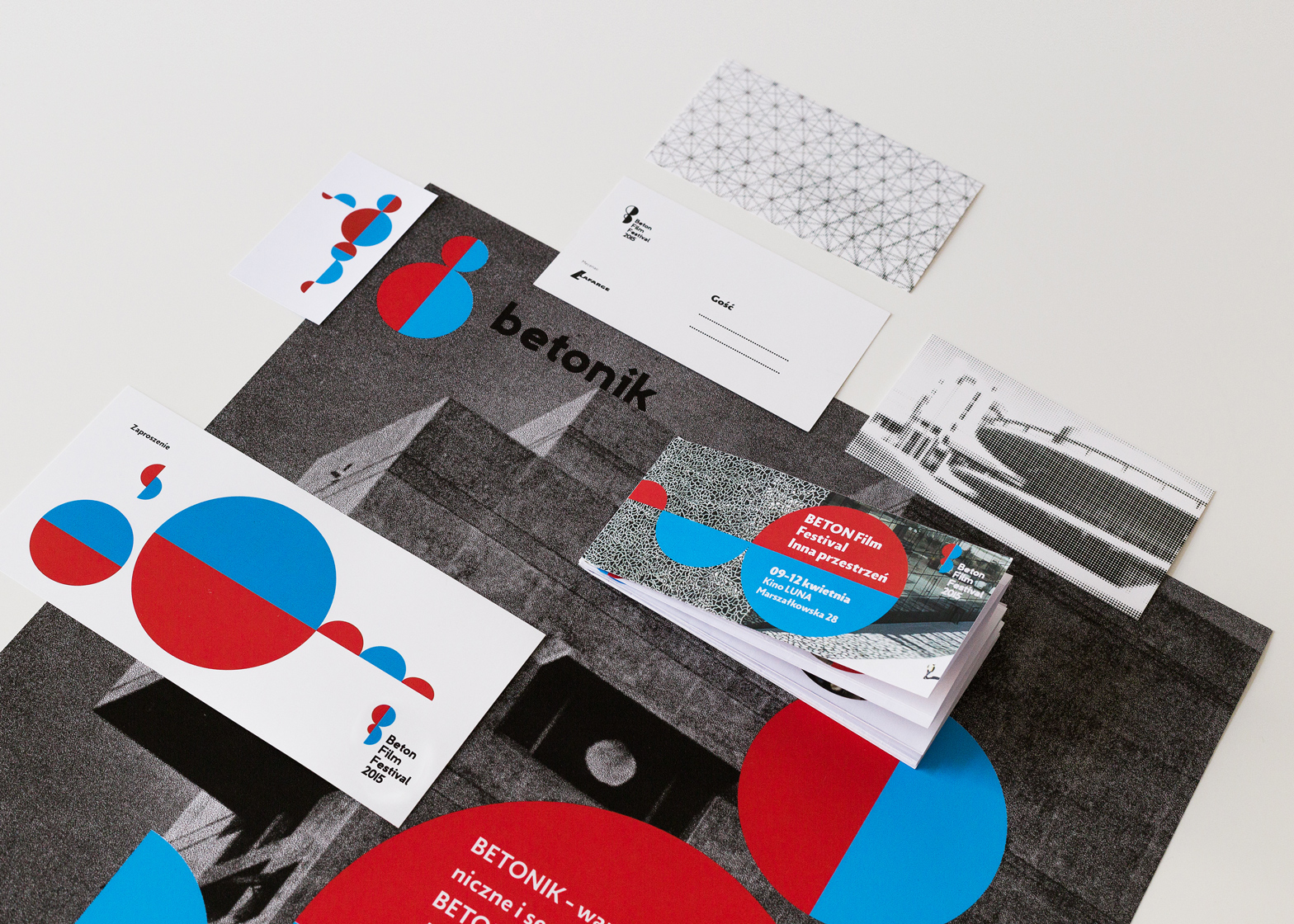Polish design studio UVMW has created a visual identity for Warsaw's Beton Film Festival based on Le Corbusier's Modulor system of proportions.
The film festival is run by the Beton Foundation: a Polish organisation that celebrates the Modernist legacy in all its forms, including films and computer games.
This prompted UVMW to base the shapes of the visual identity on Modernist architect Le Corbusier's Modulor drawings – a concept that combines the proportions of a six-foot-tall human figure with the mathematics of the golden ratio.
Le Corbusier envisioned the system to be implemented across design and architecture, and used it for projects including his Unité d'Habitation building in Marseille and a range of wooden furniture.
"We looked for forms which could be easily associated with the activities of the Beton Foundation and that wouldn't limit them to the raw material of beton [concrete]," said the designers.
The festival's identity revolves around a system of red and blue circles and semi-circles, designed to function as graphic building blocks.
The shapes can be arranged in various configurations depending on the usage. They be scaled up or down, and made more or less complex as required.
Many of the compositions are based on the various poses of a human figure, similar to Le Corbusier's Modulor Man.
"We also saved the original colouring of the Modulor," said the studio. "Its expressiveness builds the brand's language and gives the opportunity to create a diverse, strong, concrete message."
Mateusz Machalski's sans-serif typeface Zigfrid – which is inspired by German lettering – brings some "architectural flair" to the identity.
"The brand identification for the Beton Foundation is a project that tells many stories about architecture and man, and his impact on architecture itself, in a language that we know," added the studio.
2015 marked the 50th anniversary of Le Corbusier's death, which has been commemorated by a Modernist-inspired concept car by Renault, and a set of furniture based on curved elements borrowed from the architect's iconic buildings.
Italian brand Cassina also turned a paulownia tree, originally planted by Le Corbusier at his Villa Le Lac, into a collection of wooden objects designed by Jaime Hayón.

